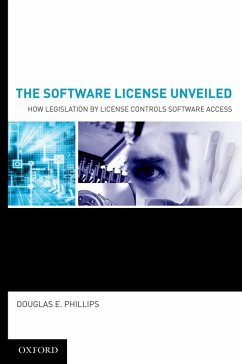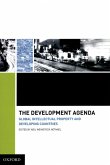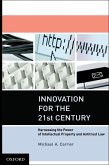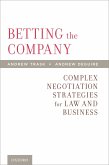Millions of computer users regularly bind themselves to software license terms with the click of a mouse, usually without reading anything but the word "agree." Licenses for software as diverse as Microsoft Windows and Linux, and terms of use for websites such as Facebook, are all subject not only to intellectual property and commercial law, but also to the private law of the license, which comes in many forms, each with its advocates. Microsoft, for example, maintains that its proprietary model gives users the rights they need while creating the incentives that have made the United States the global software leader, while Richard Stallman - creator of the GNU General Public License and author of a number of free software programs - asserts that proprietary licensing enables software companies to "hoard" software they should be sharing. In
The Software License Unveiled, Douglas Phillips looks at both of these extremes and questions how these proliferating but largely unread license terms affect access to software, one of the economy's most valuable resources. While highlighting the obvious divergences, he makes the more illuminating case that most current models - spanning the spectrum from proprietary to free - have one key feature in common: to an increasing extent, each license model extends, modifies, or displaces public law that would otherwise apply. Unlike books that advocate one form of licensing or another, this one reframes the debate to propose that going forward a key challenge for lawyers, scholars, policymakers, and the public is to consider whether "legislation by license" should be the means for controlling software access.
Dieser Download kann aus rechtlichen Gründen nur mit Rechnungsadresse in A, B, BG, CY, CZ, D, DK, EW, E, FIN, F, GR, HR, H, IRL, I, LT, L, LR, M, NL, PL, P, R, S, SLO, SK ausgeliefert werden.









